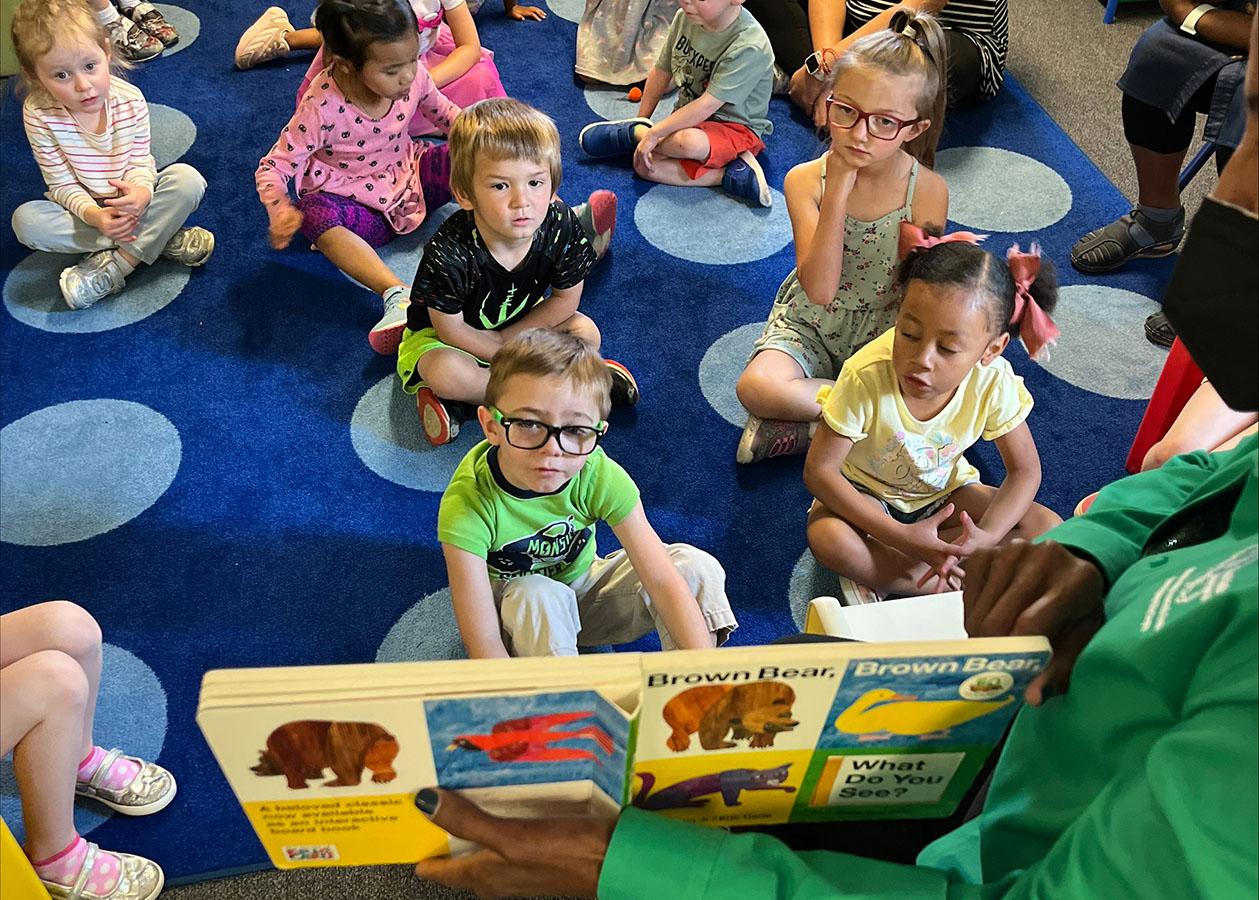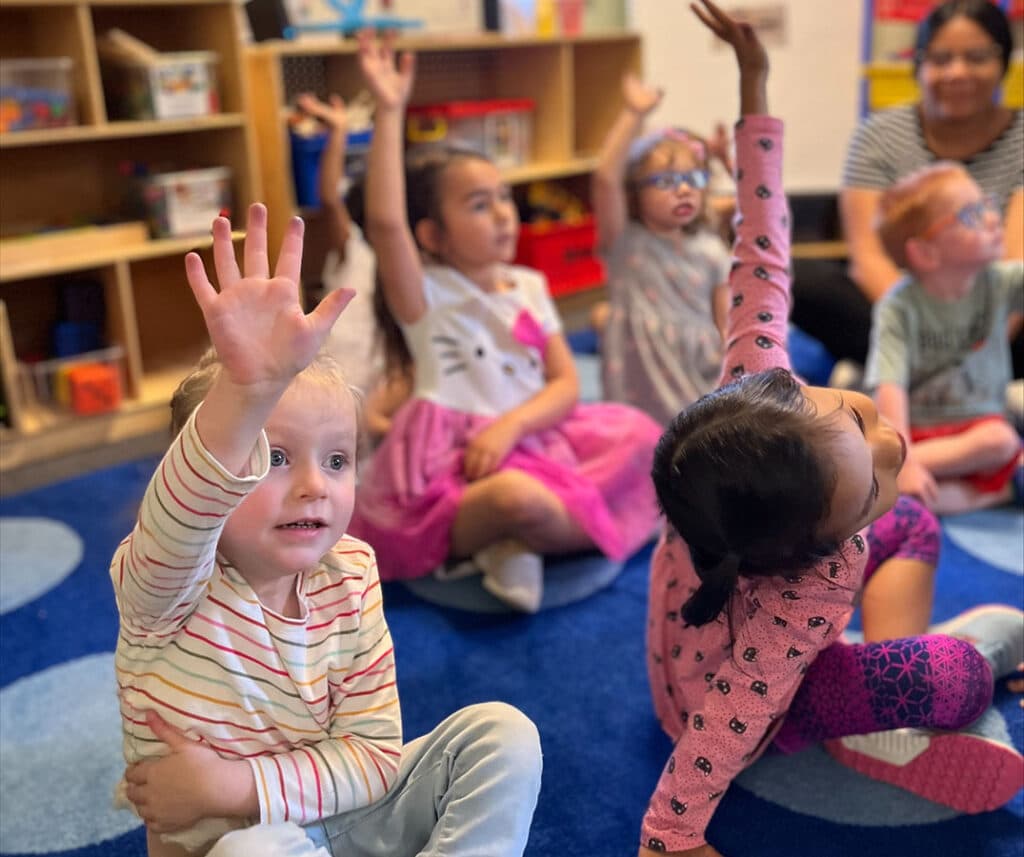
Head Start programs that serve thousands of Colorado children may face closure or disruptions in care and nutrition if the federal government shutdown stretches past this week. Four early child care centers in Colorado are set to miss their next federal funding deposit on Nov. 1, jeopardizing services for nearly 1,300 children and their families.
The federal grants cover programs in the Thompson and Poudre school district, Adams County, and a Head Start provider in Colorado Springs, the Community Partnership for Child Development. The programs serve infants through preschoolers whose families fall below the federal poverty line.
The uncertainty is disrupting families and child care workers' sense of stability, advocates said.
“We've never experienced anything like this in 60 years,” said Heather Frenz, executive director of the Colorado Head Start Association. “It's really difficult for staff and particularly families to just know that their site could be closing for an indefinite period of time. I think for directors, knowing that even if they do find this gap funding, how they will repay it.”
Head Start, the nation’s program that provides child care and preschool education to low-income families, serves more than 11,000 children in Colorado and relies on nearly $120 million in federal funds annually, which are funneled directly to providers. There are 48 grantees that operate more than 300 sites.
Compounding the crisis, families are already bracing for SNAP benefits or food stamps to be disrupted by the shutdown.
“Many families that we serve face food insecurity, so they're relying on their children having a meal in our classrooms every day and snacks,” said Amanda Rogers, chief strategy officer at Community Partnership for Child Development.
More than half the families in the Thompson Head Start program rely on SNAP benefits, which will no longer be available on Nov. 1.
Funding is dispersed on a staggered grant cycle, which means programs expecting a deposit during the shutdown can’t access their operational funds. The shutdown began Oct. 1 when Congress didn’t pass a bill to fund the government.
Head Start has enjoyed bipartisan support since it was launched six decades ago as part of President Lyndon B. Johnson’s War on Poverty. But in January, an early budget document showed the Trump administration considered shutting it down, but that prompted pushback from Republicans and Democrats.
Programs may bridge the gap
The Colorado Department of Early Childhood confirmed that all four entities are planning to keep Head Start programs open and afloat in November using other resources - but that's not sustainable for the long term.
The Thompson School District said it can continue operating through December using district resources.
“However, this is a temporary measure, and a prolonged delay in federal funding would make it difficult to sustain services past December,” said Lamb Caro, director of the district’s early childhood learning program, in an email.
The Head Start program draws $200,000 each month from its account. He said if the shutdown continues, the program could face significant changes and reductions, including access to early learning, meals and snacks, health and developmental screenings, and support for students with disabilities. Families would lose support for resources like housing and mental health services and potential job loss.
“Any disruption to funding would have a ripple effect on the children and families who rely most on these critical supports,” he said.
The Poudre School District said in a statement that the Head Sart support network is essential especially as other federal benefits are delayed.
“Our programs also enable parents to work, which supports both family well-being and the local economy. Maintaining consistent care and education is therefore critical not only to the children we serve but also to the broader community.”
Community Partnership for Child Development in Colorado Springs will stay open for now and doesn’t anticipate needing to close in the next few weeks. The center will draw upon reserve funds.

“It’s for emergencies, and we consider this an emergency,” said the Community Partnership for Child Development’s Rogers.
The center serves 883 children – 643 in Head Start and 240 in Early Head Start, which supports babies and toddlers up to age 3.
If the shutdown drags on, Rogers said the organization will need to turn to philanthropic foundations.
Closure would have cascading effects on children and families. She said families served by Head Start are predominantly low-income and working parents who hold hourly jobs without remote options or paid leave.
“They're relying on us for their child care and to take care of their children in a warm, loving environment every day,” she said.
If centers had to close and parents risk losing their jobs, advocates worry about families discontinuing services with Head Start programs.
"Many children and families served by Head Start are already facing challenging situations,” said Mathangi Subramanian, director of early childhood policy at the Colorado Children's Campaign.
“They may be experiencing homelessness, economic insecurity, foster care, or living with a disability. If these programs close down, families will need to make impossible decisions about how to take care of their children while also making it to work or school."
What’s next?
Frenz worries too, about the disruptions causing staff to leave in a field already beset with shortages.
“We fear that if a program closes, a lot of our staff will go and then find other work and not come back,” said Frenz. “We have classrooms in the state that are closed because we can't find staff. So it will be compounded with that.”
She said five states have money budgeted that can temporarily fill in when federal funding stops. Colorado doesn’t have that.
“That's sort of what we would be aiming towards and looking at in the future is having kind of a state investment in Head Start as well,” she said.
She said one funder would have to come up with $2.6 million to keep four centers open next month.
- Friday marks the first missed paycheck for federal workers, but who else will be impacted as the shutdown grinds on?
- As SNAP benefits become the next shutdown casualty, Colorado food banks brace for impact
- As government shutdown drags on, worry grows about impact if health care subsidies don’t get renewed








